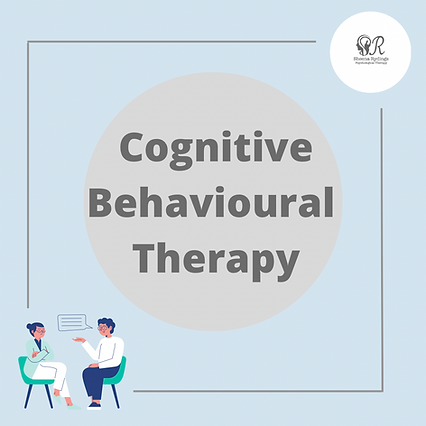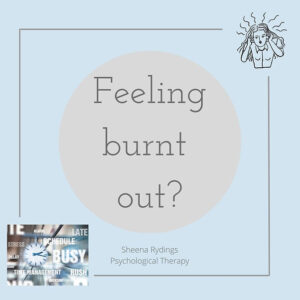Cognitive Behavioural Therapy (CBT) is a talking therapy that has been proven to help treat a wide range of conditions. It was originally developed in the ’60s by Dr Aaron Beck, initially for the treatment of depression but research has shown over the years that it is highly effective for many areas of mental health and psychological wellbeing.
CBT looks at how we think about a situation and how this effects how we act – our actions can affect how we think and feel. CBT is an effective treatment for a range of common mental health problems and is recommended by NICE guidance.
How does CBT Work?
- CBT focusses on how you think and how you act, noting how past events have shaped your thinking and behaviours. Therapist and client will work together to help make the changes that will help you to feel better. CBT deals with current problems and looks for practical solutions to improve your state of mind.
- CBT looks to help you make sense of what can feel like an overwhelming problem, by breaking it down into more manageable parts. This makes it easier to see how they are connected and how they affect you. These smaller parts are your thoughts, feelings, behaviours and even physical sensations. These elements are connected together and can often result in you being trapped in a negative cycle. CBT aims to show you other ways of thinking and acting to help you break out of the negative cycle.
What are the first steps in therapy?
- The first steps in CBT are to help you become more aware of how your mind works, identify the key areas you are struggling with or what you want to understand more and set some goals for what you want to get out of your therapy sessions.
It is a practical, solution focussed and collaborative type of therapy, which helps you to manage your problems by changing the way you think, feel and behave. Below is a diagram of what’s called the CBT Model of emotion – developed by American psychiatrist Dr Aaron Beck. This is used in therapy sessions to help people make sense of how they are feeling, and is a guide for therapists to use in therapy

It is easy to get trapped into a negative cycle, but changing the way you think and behave can have a significant positive impact on you. You will learn to recognise your thoughts, behaviours and feelings while learning other, potentially more helpful ways of thinking and behaving.
CBT therapists, like myself, are highly trained and well equipped to work with clients who have the full range of anxiety disorders, mood difficulties and many other psychological issues. I am accredited by the British Association of Cognitive and Behavioural Psychotherapies (BABCP) which means I am working to standards set by them. I also specialise in working with people with chronic pain and long term physical health conditions. You may find other therapists may be specialists in areas such as peri/postnatal, trauma etc.
Sessions are more active generally compared with other types of therapies, meaning there is involvement from both therapist and client. This is because the therapeutic relationship is based on the individual being an expert in their experiences and the therapist being an expert in CBT and working together collaboratively to bring about positive change.
CBT sessions contain a lot of education about how the mind works, psychology and different areas of mental health. CBT therapy will help you to learn and develop the knowledge and skills needed to help yourself and become your own therapist.
If you are interested in CBT and accessing support please get in touch here:



